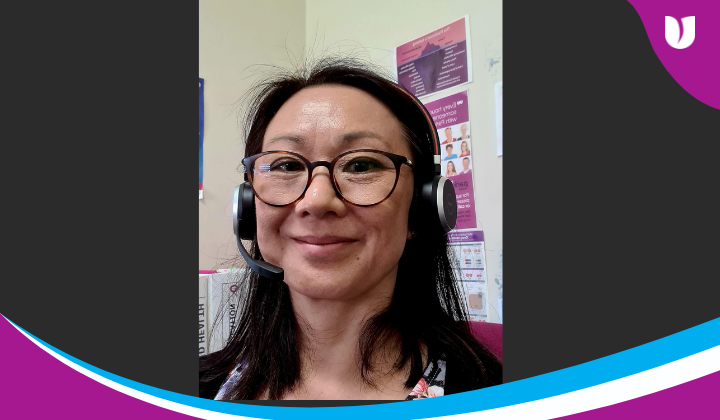Seeking support

Parkinson’s nurses in action – Geraldine
2nd April 2021
Parkinson’s research partnership
2nd April 2021Seeking support

Seeking support
Many of us already have levels of anxiety and stress resulting from our everyday life or illness – and now we are living with the additional pressure of COVID-19 restrictions.
Sadly, there remains stigma around mental health issues and seeking support from counsellors and psychologists. Many people feel they require a cut and dried set of symptoms to warrant seeking support and disregard life’s random disruptions.
Many of us have issues with health, self-confidence, managing toxic relationships and recognising when you are projecting your own insecurities and anxiety onto others. These feelings affect us every day – in our work performance, relationships and our sense of self and wellbeing.
Without actively and conscious facing these feeling, your thoughts and behaviour can manifest into something more serious. Here are some reasons for seeking support from a mental health professional.
- You need a new perspective
If you’re living with fear, or when family or friends may unintentionally hold you back from doing something different. A mental health practitioner can offer an unbiased, independent view on things which to help you reach your true potential.
- You feel you need someone to listen to you
At times we find ourselves struggling with things that we don’t feel comfortable talking to our partner, friend, or family about. Anything from a relationship, financial difficulties, health issues, dark thoughts, or something you may feel ashamed about.
Keeping these types of stresses held internally can impact your health. A mental health practitioner can be the person who can listen to you and is totally confidential and can help alleviate your stress.
- You are stuck, feeling frustrated and it’s difficult to move forward.
A mental health professional can assist you to identify the cause of frustration and help prioritise the steps you need to take to get moving. They can also help you through your setbacks, find out what you really want out of life and what’s holding you back.
- When nobody understands you
Feeling misunderstood can make you feel alienated and lonely. This can lead to social isolation with lack of connections. Some things are very difficult for others to understand.
However, a professional has training in many different situations and will understand your issue and have strategies to help. Loneliness is the biggest single factor decreasing health and quality of life for those with Parkinson’s.
- Why don’t I react or behave as I want to?
It can be easy to see others clearly but understanding why we do what we do can be difficult. We are naturally biased by our own thoughts and feeling and often our perception is our weakness.
A professional can help you see your reasons for your actions, offering solutions to change them potentially for the better.
- Continually feeling overwhelmed
Living in a fast-paced world with a chronic illness is already overwhelming. Add COVID-19 and you’ve elevated your anxiety and stress even further. Learning some new strategies can assist in reducing that constantly overwhelmed feeling. Learning new or improving your time management or problem-solving skills or receiving some supportive guidance can all assist to improve your mood.
- You keep making the wrong decision
No matter how many times we say, “I won’t do that again”, we find ourselves repeating familiar damaging behaviours. There are many reasons why we do this. You can get support to identify and stop this type of behaviour, giving yourself more power and control over your life.
- Pretending to be what you’re not
Being who you really are is a real challenge and is the key to how we can find real happiness. We need to take time to listen and acknowledge who we are.
Stop trying to impress others or worry about what someone might think. You need to be assured in your own set of values and goals and having real expectations for yourself. This can be achieved with the correct support.
- Being brave all the time
Being strong all the time is very tiring. Don’t pretend things aren’t important to you if they are. If you think you are always strong, you most probably aren’t being honest with yourself.
True strength involves being brave enough to acknowledge your less than perfect (like everybody else.) Acknowledge your challenge and ask for help.
- Taking responsibility
Seeing a mental health practitioner isn’t about feeling sorry for yourself or blaming others. It’s about building courage and clarity in yourself by taking responsibility for your life and seeking the support needed to make changes for the better.
- Improving relationships
When stressed all our relationships are put under pressure. When you get help and identify the problems you can explore and change suppressed emotions and blocks.
Seeking support and being exposed and vulnerable is scary. However, it also means you want to take the chance to feel better and live your best possible life.
What’s braver than that?
If you are seeking ways to look after your mental health, please refer to the evidence based resources available on the Mental Health Services and Support contact list.
The Government is providing additional mental health support during the Covid-19 pandemic – including 24×7 phone counselling service led by Beyond Blue and staffed by accredited mental health professionals to help people experiencing stress or anxiety associated with the impacts of the pandemic. If you are needing immediate support click here .
Think of utilising these resources even if Covid-19 isn’t your main stressor.
Additional Resources
Supporting the mental health of Australians through the Coronavirus pandemic



